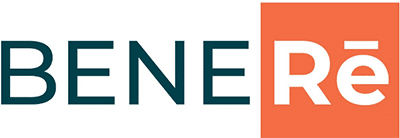Employers can attract and retain talent by paying for supplemental benefits and financially protecting 100% of employees.
Key Takeaways
- Employer-funded “voluntary” benefits are trending as a supplement to employees’ health plans
- Advantages of employer-funded benefits:
- Relatively inexpensive for employers
- Better pricing from insurance carriers
- High-deductible plan adoption strategy
- Differentiated employee benefit
It’s an unfortunate situation. The average employee’s medical plan deductible is $1,763, which the average American would have to borrow to cover. This financial gap can be addressed through Accident, Critical Illness and Hospital Indemnity coverage, otherwise known as supplemental insurance, which is typically payroll-deducted on a voluntary basis. But there is a better way.
The importance of supplemental benefits.
Supplemental benefits give employees the option to enroll in payroll deducted policies, including Accident, Critical Illness and Hospital Indemnity coverages. These are supplemental to health insurance and other traditional benefits the employee receives through their employer-sponsored plan.
If a worker suffers an accident, has to stay in the hospital, or receives a critical illness diagnosis, he or she receives money that can provide significant financial protection. An increasing number of employers is opting to pay for these historically voluntary benefits to give employees extra support. So, when the worker receives a check after an accident, the employer is paying for that benefit instead of the worker. This means employees don’t have to decide whether to enroll in these supplemental plans and have yet another deduction taken out of their paychecks each month.
The Top 4 advantages of employer-funded benefits.
Employer-funded supplemental benefits are a cost-effective way to help employers show that they care about their employees’ well-being. Here are four great reasons to transition from voluntary to employer-paid benefits.
- Employer-funded plans are relatively inexpensive for plan sponsors. Supplemental benefits are actually a smart investment in employees and for a company. Here’s an example: Let’s say an employer’s cost for one employee’s health coverage is $6,000 per year (80% contribution toward $7,500). Supplemental benefits may cost as little as $15 per month (or $180 per year). This makes up 3% of that average benefits cost, so it’s basically less than one year of medical inflation to what an employer is paying per employee. And employers can lock in these rates for years to come.
- Carrier discounts. There are also discounts from insurance carriers for employer-funded plans. With voluntary benefits, the carrier cannot predict how many employees will enroll. This uncertainty causes higher pricing for potential adverse selection. When the employer opts to cover all their employees, that price comes down 15% to 20% because the insurance company knows that every person on the census will be enrolled.
- Employees may opt for high-deductible plans. Some employers are deciding to offer employer-funded benefits as an incentive to enroll in high-deductible health plans. So, people will enroll in a Health Savings Account (HSA) compatible offering instead of the lower deductible plan, which also helps the employer’s bottom line. When people are looking at the high deductibles, it helps if the employer is building a safety net for many catastrophic claims scenarios. Plus, unlike employer HSA contributions, the coverage will remain in force rather than employees potentially withdrawing HSA savings for non-medical expenses and incurring penalties.
- A great way to show extra support for your employees. Employer-funded supplemental benefits are a relatively inexpensive way to enhance benefits offerings to show employees that their employer cares about them. In a pivotal economy, it’s important to help workers build a safety net to help remove the risk of unexpected expenses, especially unplanned medical bills. Employer-funded supplemental benefits are a great way to accomplish this, and to show support for your employees.
Supplemental benefits from BeneRe.
Our research and experience at BeneRe has shown that only 5% of employers are going the employer-funded supplemental plan route. That means you will stand out from 95% of employers who are not doing it. It is a great way to show employees you care while improving your retention efforts as well.
BeneRe offers supplemental benefits to large employers via a group captive insurance program in which all employee premiums are paid directly to the A-rated carrier in exchange for fully insured policies. Any underwriting gains are distributed back to employer health insurance programs on a pro-rata basis.
Reach out to BeneRe for a complimentary financial analysis of in-force programs today.
